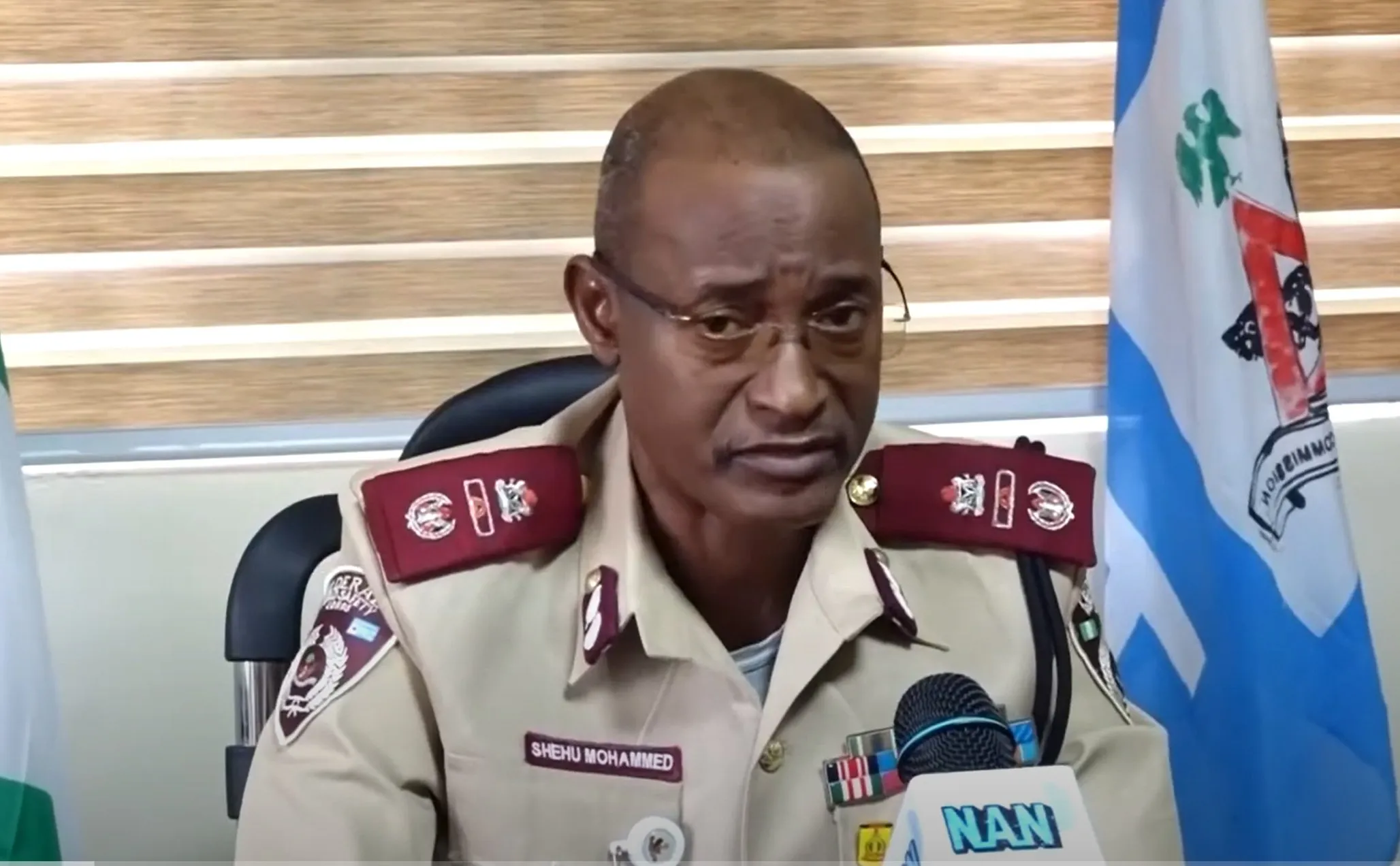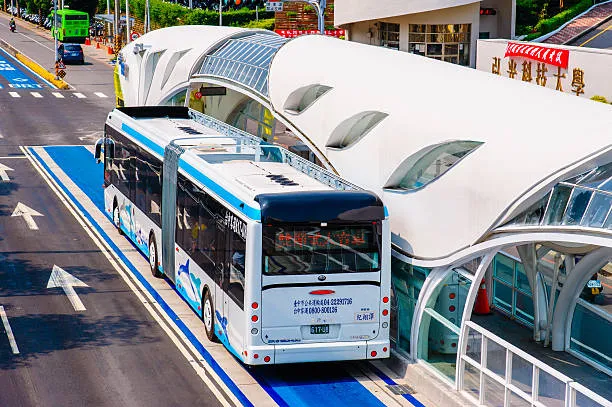
How Mallam Shehu Mohammed Is Changing ‘Nigeria’ Through The Frsc Mobile App Innovation By Okechukwu Jude
- Road
- April 24, 2025
- No Comment
- 459
When President Bola Tinubu approved the appointment of Mallam Shehu Mohammed in 2024, as the 8th Corps Marshal of the Federal Road Safety Corps, (FRSC) and the 3rd from the ranks, of the Corps Marshal, he left no one in doubt about his intentions and philosophy toward repositioning the FRSC as the nation’s lead agency on road safety and traffic management.
New technology Innovations, such as radar guns, breathalyzers, body cameras, red light enforcement, automated number plates, driver’s license verification, and law enforcement interactions with the public, are all examples of contemporary strategies for strengthening the capacity for road safety management in Nigeria.
Interestingly, speed limit signs indicate safe bounds for drivers to stay within while driving, in addition to other road signs and flashing lights which indicate when extraordinary caution is needed on the road. Even in other climes, such as the USA and UK, the positive impact of digital solutions in road safety management cannot be overemphasized.
It is, therefore, most worrisome that in the face of these measures and other innovative strategies put in place by the FRSC to address reckless driving and improper road use, road crashes and fatalities related to unsafe driving and poor road infrastructure seem to be on the increase on Nigerian roads.
He is a career officer, the 3rd to head the Corps after Boboye Oyeyemi and Dauda A. Biu.
Focused and committed to improving the FRSC in areas of policy formulation, operational strategies, and human capital development, he also has the philosophy and belief that humility is the foundation of all virtues.
He has assured Nigerians of safer road environments across the seasons, citing the special presidential attention given to the Corps. To that effect, has stressed the need for sustained sacrifice and devotion to duties by FRSC personnel.
As a professional who grew from the ranks, He has sought collaboration with the Chief of Defence Staff in areas of human capital development and intelligence gathering.
With a candidate leadership style, he is known for leading from the front and being a servant leader. A juncture that had earned him awards and recognitions, within and outside the shores of this country within a short period of appointment.
Buoyed by the wide jubilation borne out of the long expectations of the people that a competent officer with a full understanding of the vision and mission of the organization has come on board, Mallam Shehu immediately hit the ground running with definite assurances to effect a new paradigm shift that will positively change the narrative and commitment of the Corps with the mandate to bequeath safer driving culture to Nigerian road users.
Given this, the Corps Marshal had on assumption of office stated that his leadership would focus on five major principles which are to upscale the digitalization of its procedures, training, and retraining of staff to enhance professionalism, improve the presence and visibility of the Corps across the nation’s highways, promoting strategic partnership for collective responsibility, entrenching discipline in line with ethics of regimentation and improving staff welfare for efficient service Delivery, all encapsulated under the principle of People, Process, and Technology (PPT).
Driven by these commitments, his first point of call was the visits to national driver’s license processing Centers in Wuse, the Federal Secretariat, and the Print Farm in Kado, as well as the vehicle number plate production Plant in Gwagwalada in the Federal Capital Territory. In his words, “the visits were necessitated by the need to carry out a physical assessment and address lingering challenges associated with the drivers’ license occasioned by infrastructural, technical issues and noticeable gaps in managing the motor vehicle administration mechanism of the Corps.”
Commendably, this strategic intervention resulted in the production of about 74,000 licenses in two weeks which led to the clearing of the backlog of drivers’ licenses at various Centers across the country. Presently, Nigerians can attest to the fact of a seamless process in obtaining their driver’s license. Besides a gradual restoration of the integrity of the Nigerian driver’s license, the Corps Marshal has replicated similar strategies by strengthening the production capacity of vehicle number plate Plants, thus culminating in the availability of vehicle number plates.
The adoption of an improved digital method of operation is not merely a nod to modernity but a fundamental shift that addresses the growing complexities of road safety management in Nigeria. Under his watch, the FRSC has begun implementing advanced data management systems to monitor and analyze traffic patterns, accident reports, and enforcement activities. The Corps Marshal has also initiated comprehensive training programs aimed at equipping personnel with hands-on skills and knowledge in road safety management, law enforcement, and customer service. These programs are designed not only to improve the technical competence of FRSC officers and men but also to foster a culture of discipline, integrity, and excellence within the Corps.
As an Officer with over 30 years of required experience in road safety management and administration and driven by the passion to properly re-align the FRSC to live up to public expectation, under Mallam Shehu’s watch within 100 days in office, the Corps has raised the bar on its operational front after the 2024 special patrols usually initiated to ensure seamless flow of vehicular and human traffic in addition to road crash reduction during the festive seasons.
Aside from achieving 40% in the number of passengers rescued without injuries, there was also a corresponding reduction of 50% in road traffic crashes, a 38% downward slide in the number of people involved, a 35% reduction in the number of people killed, and a 35% decrease in the number of injured persons within this period. This underscores the Corps Marshal’s disposition towards safer roads and fuller lives for the Nigerian motoring public.
In keeping with his words on the assumption of the duty to raise the bar on digitized operations in the FRSC in line with the Renewed Hope Agenda of President Bola Tinubu, the Corps Marshal scored another master stroke during the formal launch of a Mobile App and a National Crash Reporting Information System (NACRIS) designed to raise awareness and sensitize both drivers and passengers on the potential causative factors of road traffic crashes and to break new grounds in the Corps’ sustained efforts to create safer motoring environment in Nigeria and digital transformation of the FRSC to further boost the nation’s economic growth.
In his words, “the FRSC Mobile App is a software application that can be used on our phones to alert us on sensitive road safety issues through programmed features such as excessive speeding, dangerous driving, verifying our vehicle documents amongst others. The proper application of these features is expected to drastically reduce injuries and fatalities resulting from road traffic crashes. In this era of technological advancement, FRSC cannot afford to lag. It is in this light that the Corps has decided to adapt and evolve its operations into the global network service system”.
As an interactive digital tool, the mobile App will usher Nigerians into a new horizon of road safety management through the following: Emergency reporting by road users on road traffic crashes, patrol misconduct, traffic gridlock, and customer satisfaction as well as a speed detector feature that beeps on any phone the application is installed on when a driver moves above prescribed speed limit on specified roads and vehicle category.
There is also a black spot (crash-prone locations on the highways) indicator as a crash prevention tool that prompts road users at 2km to an identified crash-prone area as well as verification or confirmation of the validity of some of the Corps’ services such as the National Drivers’ License, Vehicle Number Plate,
Integration of the National Vehicle Identification Scheme, National Drivers’ License, Driving School Standardization Programme, Road Transport Safety Standardization Scheme, and the Speed Limit Device online services for easy accessibility without unnecessary human interface is also contained in the app.
Provision of regular relevant news updates on road traffic in the country, help, and learning interface on Frequently Asked Questions on road safety, reminder interface for vehicle tire replacement, oil change & amp; services, vehicle paper, Driver’s Licence, fire extinguisher replacement and customized reminder for users in addition to emergency contact numbers on road emergencies and other security outfits and ability to report the stolen vehicle to the Corps for tracking/recovery.
Aside from being optimized to run on various digital systems at the most efficient rate, the Mobile App is also designed to promote road user safety and promote a culture of inclusivity in road safety prioritization in Nigeria.
On the other hand, the NACRIS is designed to promote a multi-sectoral approach to crash reporting and data storage. Taking cognizance of data as a veritable tool for planning and allocation of resources, the NACRIS approach is designed to ensure that collated data is utilized for the effective implementation of policies that would positively impact road safety administration.
NACRIS underscores the Corps’ efforts demonstrated over the years to generate information about road traffic crashes, such as the inauguration of the Road Traffic Crash Information System in 2014 and the harmonized reporting format of Road Traffic Crash to align with contemporary global best practices.
It is a web application that allows the Corps to analyze the economic, health, and other burdens that road traffic crashes leave on the shoulders of our nation, as well as helps in intelligence sharing with relevant stakeholders such as the Nigerian Police, National Emergency Management Agency, National Bureau of Statistic, National Population Commission, Ministries of Works and Transport, etc.
Taking into cognizance of Road transportation as the most widely used means of transportation in all countries including Nigeria, there is no doubt that with unfettered public buy-in and seamless government support through improved funding, rehabilitation of roads, installation of appropriate road signs and markings, the FRSC Mobile App and the National Crash Reporting Information System will further strengthen the FRSC under the present Corps Marshal to deliver on its mandate of entrenching safer road culture on Nigerian highways.





